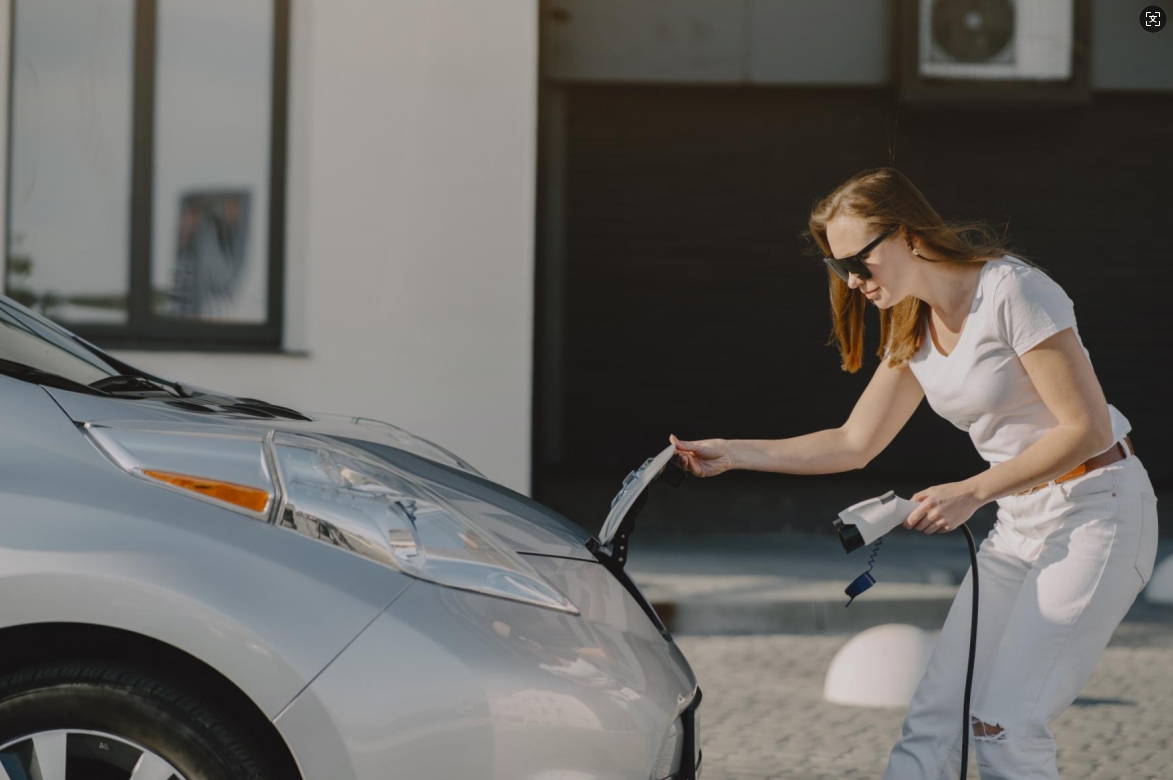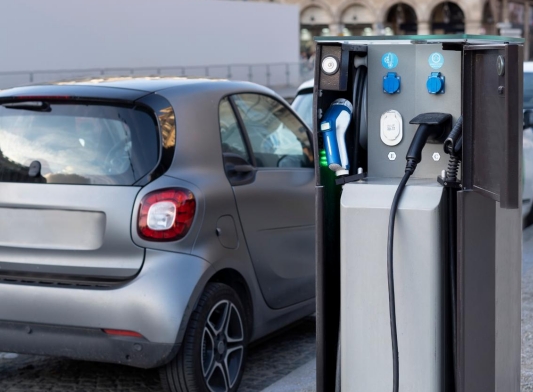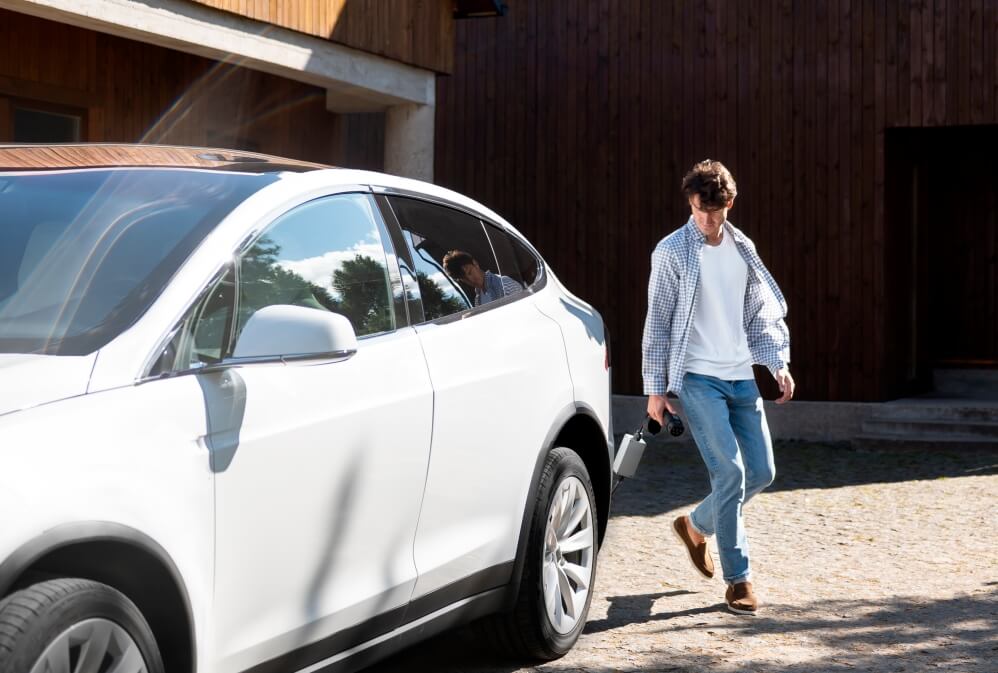Best Type 2 EV Portable Chargers: Expert Review & Guide
Imagine driving your beloved electric vehicle on a long road trip, only to realize there’s no fixed charging station nearby. In such moments, a portable Type 2 charger can save the day, allowing you to recharge anywhere and keep moving forward. From bulky early designs to today’s lightweight and efficient models, portable chargers have become an essential tool for every EV owner. In this guide, we’ll explore the top portable Type 2 EV chargers of 2024 and help you find the perfect one for your needs.
Understanding Type 2 EV Portable Chargers
The Type 2 connector, or Mennekes, has become the standard in Europe and many other regions. This seven-pin connector supports single-phase and three-phase charging, making it incredibly versatile. A portable Type 2 EV charger perfectly balances home charging convenience and on-the-road reliability.
Modern Type 2 EV chargers can deliver charging speeds from 3.6kW to 22kW, depending on your vehicle’s capabilities and the power source. What makes these chargers particularly valuable is their adaptability to different power outlets while maintaining essential safety features.

Top 5 Type 2 Portable EV Chargers in 2024
After extensive testing and real-world usage, here are our top recommendations:
- PowerFlex Pro X22
- Charging speed: Up to 22kW
- Exceptional build quality with an IP66 rating
- Innovative features, including power adjustment
- Premium price point but outstanding reliability
- Perfect for both home and travel use
- Charging speed: Up to 22kW
- Tayniu Infinity Series
- Professional-grade 7kW output capability
- Robust IP66 weatherproof rating for all-weather charging
- Comprehensive safety certifications (CE, RoHS, FCC)
- Highly customizable through OEM services
- Excellent build quality-to-price ratio
- Ideal for daily commuters and home-charging
- Professional-grade 7kW output capability
- EcoCharge Smart
- 11kW maximum output
- Built-in power monitoring
- Excellent value for money
- User-friendly app interface
What sets the Tayniu Infinity series apart is its perfect balance between professional performance and adaptability. While it may not match the PowerFlex X22’s maximum output, its 7kW charging capability is sufficient for overnight and most daily charging scenarios. The comprehensive certification package (CE, RoHS, FCC) demonstrates Tayniu’s commitment to Tayniu’s quality, while the IP66 rating ensures reliable operation in challenging weather conditions.
For businesses and fleet operators, the OEM customization option adds significant value, allowing for branded charging solutions that maintain the same high safety and performance standards.
Key Features to Consider When Buying
When selecting a portable Type 2 EV charger, several critical factors deserve your attention:
1. Charging Speed Capabilities
Your vehicle’s onboard charger determines the maximum charging speed it can accept. While a 22kW charger offers future-proofing, many current EVs max out at 11kW on AC charging. Consider your specific vehicle’s capabilities before investing in a higher-powered unit.
You can refer to our electric car guide or visit the official website of the brand of car you are buying for more information about the vehicle.
2. Cable Quality and Length
Premium chargers use high-grade cables that resist UV damage and remain flexible in cold weather. Look for wires at least 5 meters long to ensure convenient charging in various parking situations. The cable quality directly impacts the charger’s longevity and safety.
3. Weather Protection and Durability
For portable chargers, weather resistance is crucial. Look for units with at least an IP65 rating, ensuring protection against dust and water jets. The best portable Type 2 EV chargers offer IP67 protection, allowing for temporary submersion.
Usage Guide and Best Practices
To maximize the lifespan of your portable charger and ensure safe operation:
- Always inspect the cable and connectors before use
- Store the charger in a dry, clean place
- Avoid dropping the control box or running over the cable
- Keep the charger’s firmware updated if it supports updates
Understanding Charging Speed and Compatibility
Most modern EVs have Type 2 charging capabilities, but charging speeds vary significantly. Here’s what you need to know:
- Single-phase charging (standard in residential settings) typically maxes out at 7.4kW
- Three-phase charging can reach 22kW with compatible vehicles
- Your home’s electrical capacity may limit charging speeds
- Some vehicles may have software-limited charging rates
Cost Considerations
While premium portable Type 2 EV chargers might seem expensive initially, they offer significant advantages:
- Reduced dependency on public charging infrastructure
- Lower charging costs compared to rapid DC charging
- Potential energy cost savings through innovative charging features
- Higher resale value due to better build quality
Expert Tips and Recommendations
As a recognized brand with extensive experience in electric vehicle charging systems, here are some key insights:
- Always check your vehicle’s maximum AC charging rate before purchasing
- Consider future-proofing your investment if you plan to upgrade your EV
- Don’t skimp on safety certifications – look for CE marking and local approvals
- Test the charger thoroughly within the return period
Conclusion
The right portable Type 2 EV charger is crucial for a convenient and reliable charging experience. While premium options like the PowerFlex Pro X22 offer the most features and fastest charging capabilities, even mid-range options can provide excellent service if matched correctly to your vehicle’s specifications.
Remember that the best charger depends on your needs, vehicle capabilities, and typical usage patterns. Consider this guide a starting point for making an informed decision about your EV charging solution.
Frequently Asked Questions
Q: Can I use a Type 2 portable charger in the rain?
A: Yes, if it has an appropriate IP rating (IP65 or higher). However, always ensure connections are made adequately before charging begins.
Q: Will a 22kW charger charge my car faster than an 11kW unit?
A: Only if your vehicle supports three-phase charging at 22kW. Check your vehicle specifications to determine its maximum AC charging rate.
Note: The content of this article applies to Europe and other regions that use the Type 2 charging standard and may be less applicable to North America.
Last Updated on December 25, 2024 by tayniu



